UC San Diego’s men’s volleyball team, playing a shortened, but grueling, schedule of solely Big West opponents, finished 3–12 in the 2021 regular season. But after notching their first Division-I postseason victory against California State University, Northridge, the Tritons knocked off undefeated national No. 1 Hawaii in a massive upset, but could not repeat the feat a night later in the finals against UC Santa Barbara. The Guardian sat down with UCSD’s 16th-year head coach Kevin Ring to talk about the pandemic-affected season, a historic Big West tournament run, and more.
This season has obviously been a very unusual one. What sorts of adjustments did you have to make this season to accommodate all the changes, both in scheduling and with COVID protocols?
Throughout the fall, we had a very untraditional training block. Most of our practices were socially distanced, we were not able to play 6-on-6 in the practice gym, we were not able to have attackers hitting against blockers, so we very much had to adjust how we train.
We were still able to serve and pass and hit and do block moves at different times, but it was a lot more individual work — which is still very valuable, but you just don’t get the team dynamic to put in your blocking and offensive systems.
Throughout the fall we were looking at what the season was going to look like. We were still trying to schedule with teams outside of the Big West, but that was still very much uncertainty… We got to a point where the Big West basically said we’re not going to play any non-Big West opponents throughout the year, and that we wouldn’t play until the end of February. We were able to pick up four non-conference matchups against Big West opponents — we played UC Santa Barbara twice and [the University of] Hawaii twice at the end of February and the first part of March — before we got into our ten conference matches.
As far as all the protocols, [there was] obviously a lot of testing, with weekly testing and sometimes multiple tests a week, daily screenings for how the guys are feeling, coaches included. I think the guys did a great job just to make this happen. There were so many protocols, and I appreciate the support of our administration, our athletic training room, and Claire Pointer, our athletics trainer, to put us in a position that we were able to have practices and ultimately matches there.
But as far as being in the gym and training, it’s still just coaching volleyball, and trying to get the guys to get better, giving them a lot of good reps and feedback, so I think the guys made the most of that.
Getting into the Big West tournament, that first match against CSUN was the program’s first postseason victory at the Division I level. What did it feel like to finally get that milestone, especially after how the previous season ended?
You mentioned last season, and yeah, when the season shut down we were 14–5, ranked No. 6 in the country, really having a great season. We had played maybe three conference matches at that point, so we had seven more to go and then the conference tournament. That unfortunately didn’t happen for us. But heading into this year and then getting into the conference tournament, there are only six teams in the conference and we’re in it.
We were the four seed facing Cal State Northridge. We had beaten them twice during the regular season — beat them in three at their place, and then we had a very competitive close match where we beat them in five at our place. So I knew they were certainly a talented team, and they had some really good athletes there. So for us to be able to come out and also travel all this way on a neutral court, I thought we played a really good match.
The sets were close, but I was really proud of the guys, and — I’m an alumni of the program. I played here at UCSD, and after the match, I said, let me speak for all the men’s volleyball alumni and just thank the guys for their efforts. This is something that for years now, whether we were in the MPSF as a Division-II program and then now in the Big West, this is something we’ve been shooting for for a long, long time.
So to get that that first one was really special. The guys played well, and it was well earned. But the nature of the tournament is, well, that one is done and we’re set up to play three matches in three days, so you have a quick turnaround — to beat Northridge, and then face the No. 1 seed in the University of Hawaii.
Entering the game against Hawaii, they were not only the undefeated No. 1 team in the nation on their home floor, but they had also four victories against your team in the season. What was your message going into the game to prevent that from happening another time?
Easier said than done, for sure. They’re number one in the country for a reason. They’re very good, very talented, and [the player] who ended up being the AVCA [American Volleyball Coaches Association] Player of the Year was their opposite [Rado Parapunov]. So that’s a tall order to try to slow him down. I thought we had a good game plan on him, and we just executed well. I think the guys were motivated and focused, and the matchups we got and how the guys played them worked out in our favor.
It went five sets, and the three sets we won were all deuce games where we won by two points, with the fifth set being 18–16. Those are close games, and that’s something we talked about earlier in the year where we had lost some of those close games. We wanted it to be more than just a coin flip, just luck of the draw. When you’re that close, when it’s 20-all, 22-all, 23-all, who’s going to win that set? That shows a lot of maturity by the team, and experience making heady plays late in the game to do that. So I was really proud of the efforts there, and it was just a huge, exciting win.
Again, it just meant hey, we still had one more match the next night moving onto the finals, but still a historic victory for us — beating a No. 1 ranked team, a team of Hawaii’s caliber. We’ve beaten Hawaii in the past, but that stage was possibly one of the biggest matches in the history of our program, and to come out with a victory is pretty huge.
Where would you say this victory ranks in your time in the program?
Well, I played here at the time when we won the Division III Invitational, and a championship is a championship, so that was very meaningful for that group.
But certainly, in my time here as a head coach for 16 years, I’d rank that right there at the top. The stage that it was on, and it was a conference match playing a No. 1 team in the country on their court in the playoffs, that meant a lot.
After the Hawaii game, to what degree are you celebrating taking down the top team in the nation, but also keeping your eye on a tough opponent the next night?
Obviously the guys celebrated right after the match on the court. There was definitely a lot of excitement for the fans that were able to watch that match, and in the locker room afterwards, just how fired up the guys were and how impactful that was for them. At the same time you’re on this emotional high, we all knew that we had a very good opponent the next night in Santa Barbara. Obviously they had beaten us during the regular season… We had a couple of close matches with them, and we felt that was a team that we could be in a position to win [against]. We knew it was going to be difficult, but like you said it’s definitely a balance celebrating that victory.
I think we came out the next day and got into that match, had a little bit of a lead midway through the second set, so I don’t think we had any sort of emotional hangover from the big victory versus Hawaii the night before. We came out with really focused play, it was good volleyball back and forth, and we played at a high level in the first and second set. Then, unfortunately, we came up short.
This is where the regular season comes into play, and the seeding. Hawaii was the No. 1 seed, and Santa Barbara was No. 2, so they didn’t play until Friday and the finals was Santa Barbara’s second match. It was our third match in three days, and that’s a lot, but it was the situation we were in and we didn’t back away from it. We gave it everything we had, but there’s a level of fatigue that goes along with that. Doesn’t mean we couldn’t have won the match, and I think we did a lot of good things to put ourselves into a position to do so. Even losing that second set and going into the third and fourth, those are still close games and we still had our chances.
So, I’m just really proud of how far and how hard the guys fought throughout the season. Looking at what we accomplished on the year, I think we played 18 matches overall. Well, 11 of them were against either No. 1-ranked Hawaii or No. 3-ranked Santa Barbara. 11 of our 18 matches, and so that is a brutally tough matchup. That’s just the way it worked out, but those are fun matches to play, and that’s only going to make us better moving forward.
Once again, this has been a very unusual season, but capped off with some really great wins at the end. Now that you have both the first postseason win and an upset of a No. 1 team under your belt, how do you try and build on that for next season?
I don’t know that anyone knows exactly what next year will look like. I think there’s a lot of people that are optimistic about having a lot of things getting back a little closer to normal. In our world, maybe that’s a more standard season, nonconference matches, starting competition in January. So hopefully that’s where we get to.
With that, we know that the Big West conference tournament will be back in Hawaii next year, and we know that all six teams will make it in. We’re going to fight and claw so we can be one of the top two seeds, and get that bye so we don’t have to play on Thursday, and don’t play until the Friday night match. That puts you in a little bit better position there.
So for us, I think the guys are really motivated. When you compete at a really high level and you’re in that position, that gets addicting. The guys want to get back to that, and we want to have those kinds of matches, meaningful matches, to win and move on, to fight and claw to put ourselves in a position to get to the NCAA tournament.
Photo courtesy of Derrick Tuskan / UC San Diego Athletics


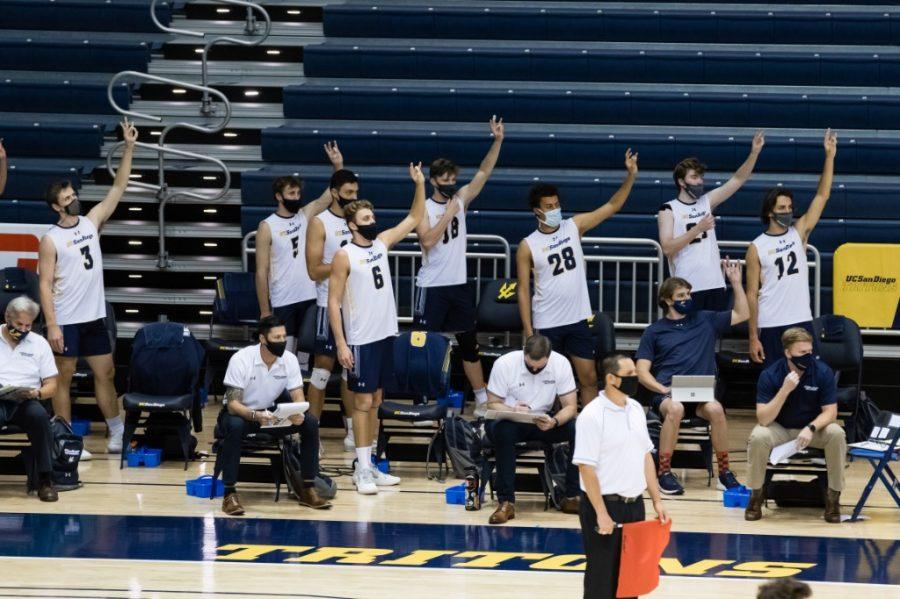
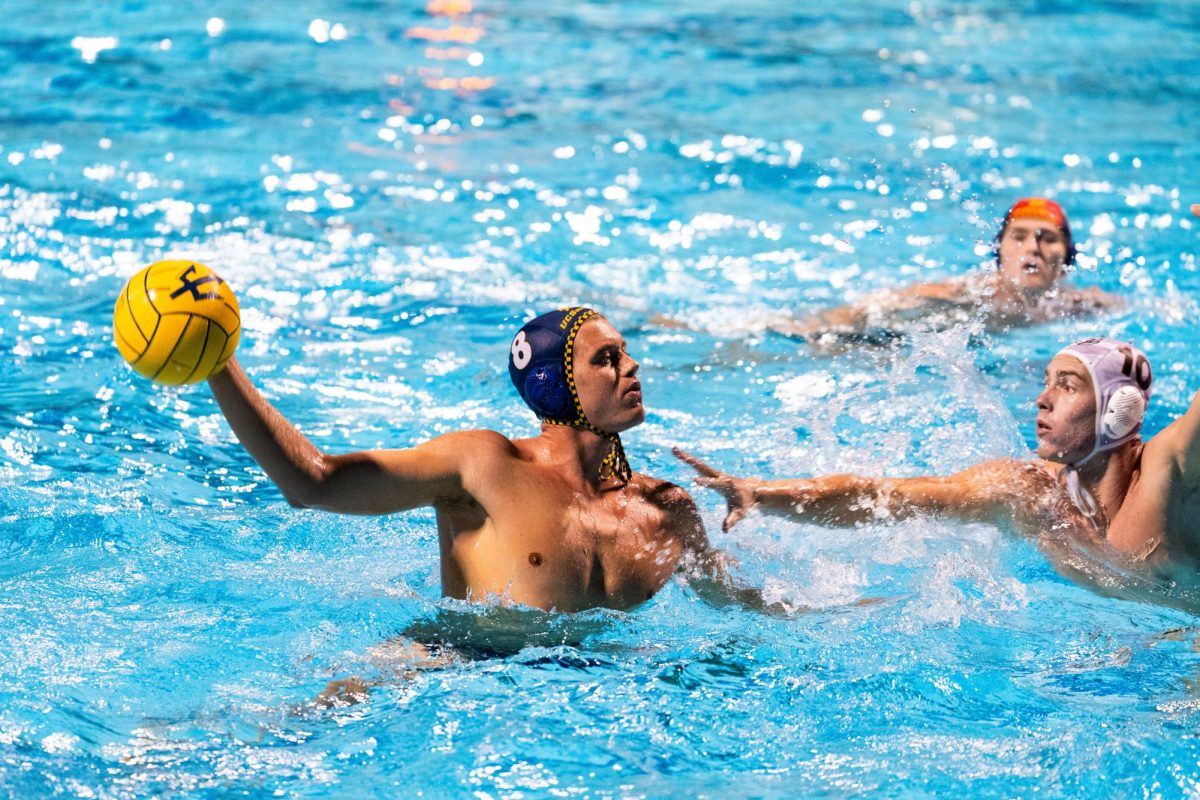
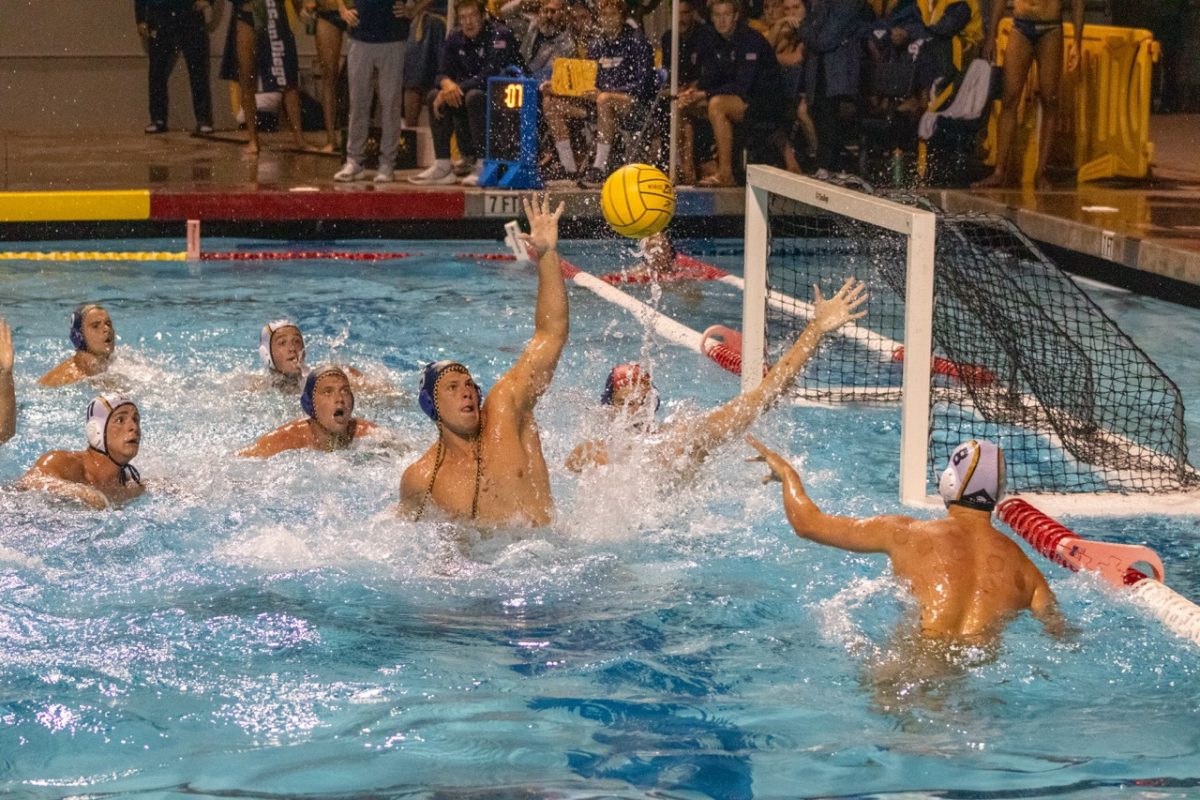
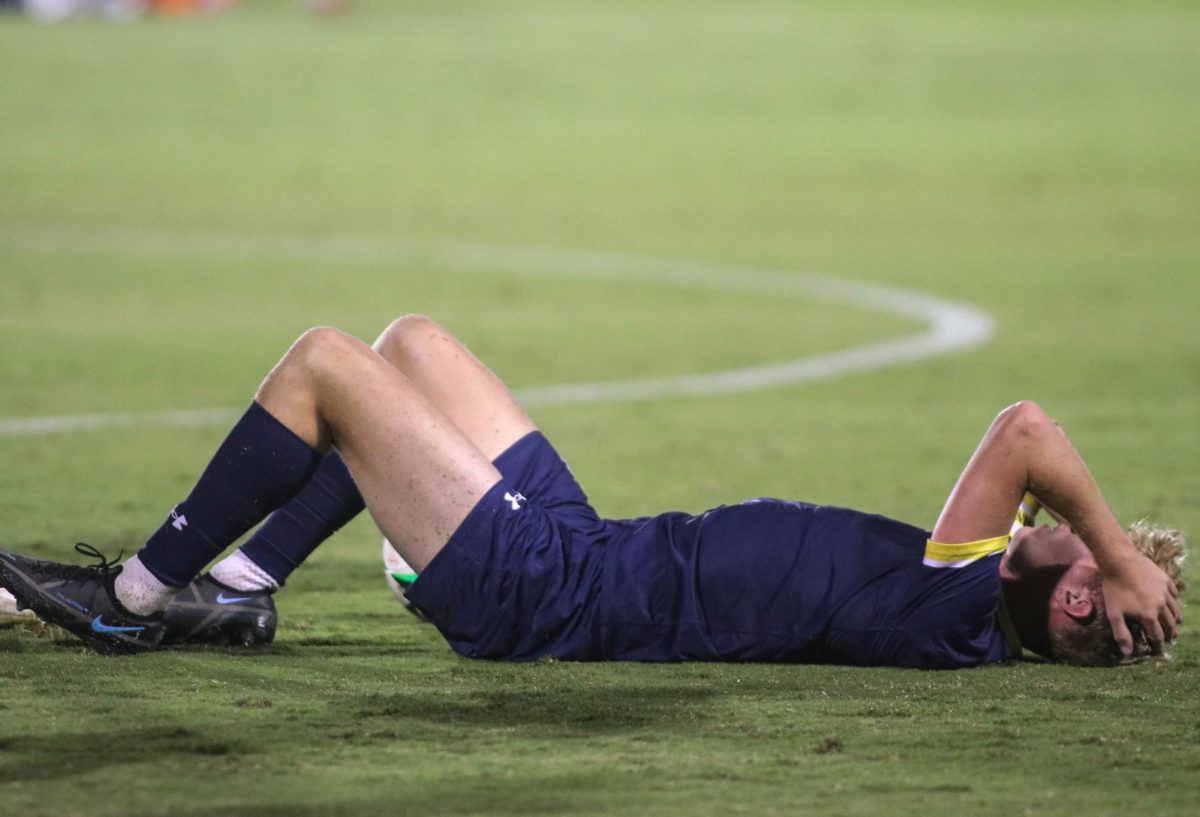
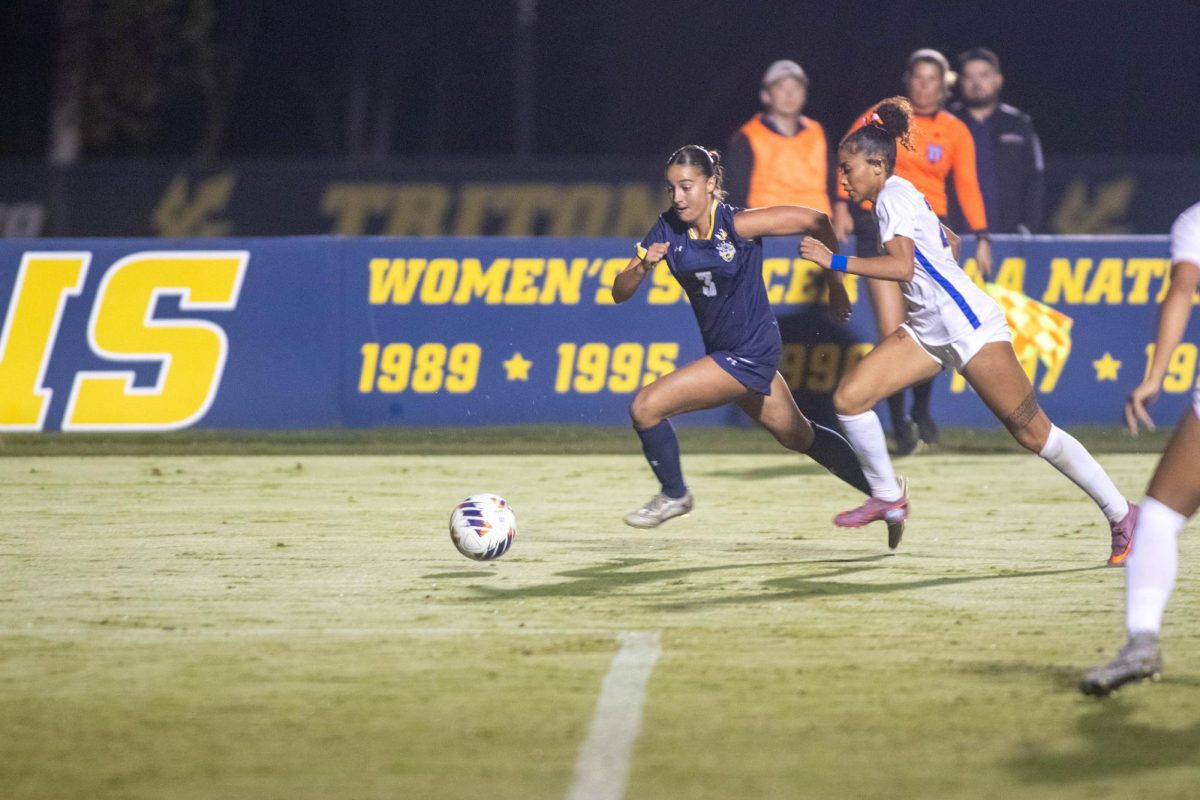
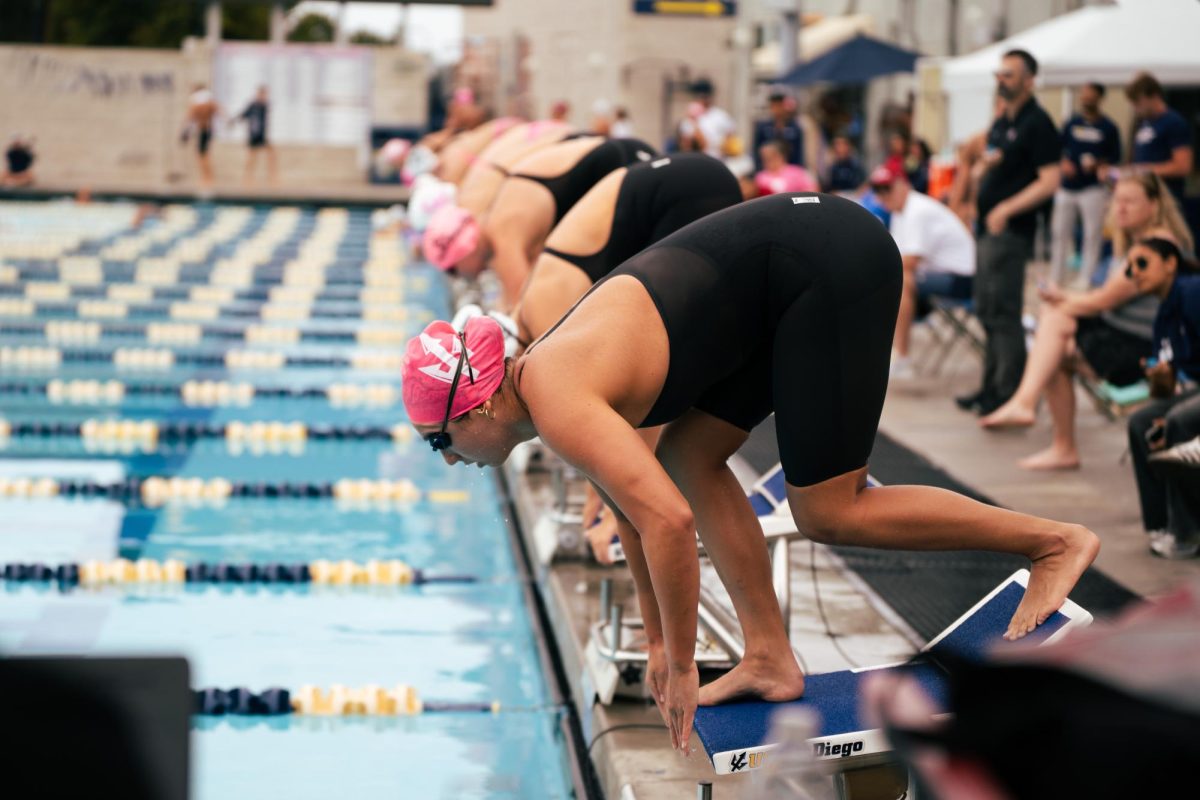
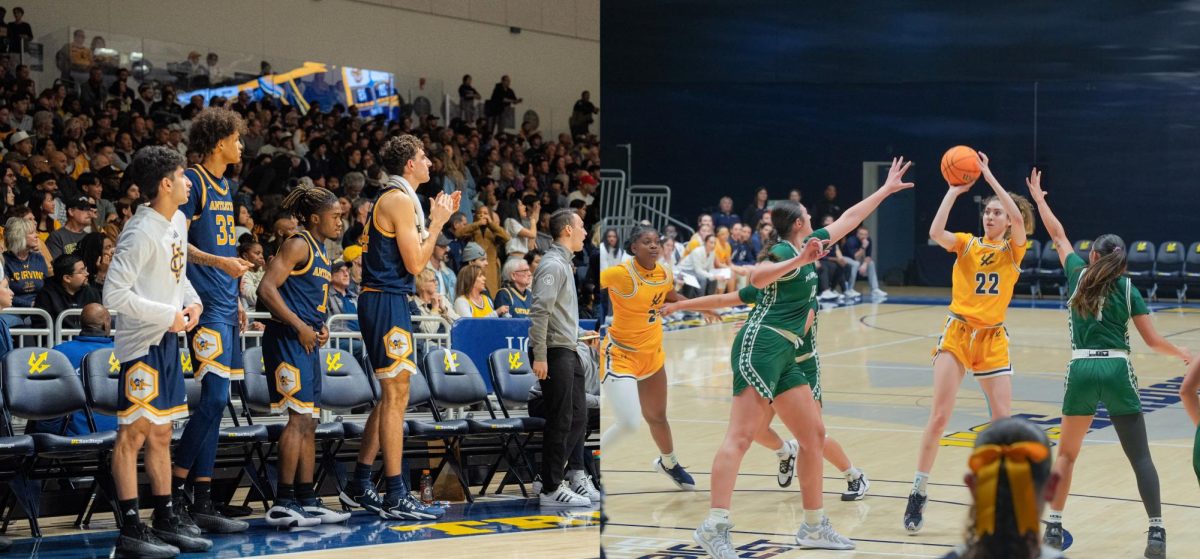
Jo-Ryan Salazar • May 10, 2021 at 3:23 am
By all means, this season was a rousing success for UC San Diego men’s volleyball. The only team to topple the current national champions, Hawaii. Not an easy task. Congrats on a great campaign, and good luck next season. From your friends at the Beach. Go Big West.